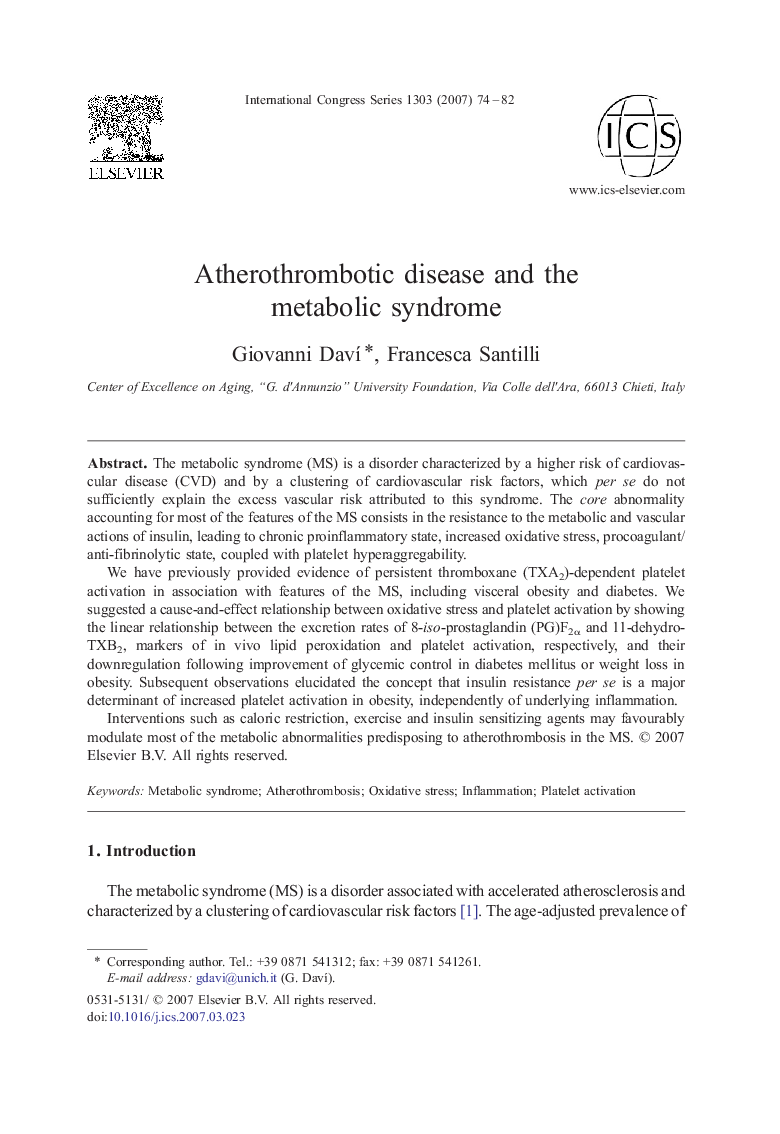| Article ID | Journal | Published Year | Pages | File Type |
|---|---|---|---|---|
| 2576570 | International Congress Series | 2007 | 9 Pages |
The metabolic syndrome (MS) is a disorder characterized by a higher risk of cardiovascular disease (CVD) and by a clustering of cardiovascular risk factors, which per se do not sufficiently explain the excess vascular risk attributed to this syndrome. The core abnormality accounting for most of the features of the MS consists in the resistance to the metabolic and vascular actions of insulin, leading to chronic proinflammatory state, increased oxidative stress, procoagulant/anti-fibrinolytic state, coupled with platelet hyperaggregability.We have previously provided evidence of persistent thromboxane (TXA2)-dependent platelet activation in association with features of the MS, including visceral obesity and diabetes. We suggested a cause-and-effect relationship between oxidative stress and platelet activation by showing the linear relationship between the excretion rates of 8-iso-prostaglandin (PG)F2α and 11-dehydro-TXB2, markers of in vivo lipid peroxidation and platelet activation, respectively, and their downregulation following improvement of glycemic control in diabetes mellitus or weight loss in obesity. Subsequent observations elucidated the concept that insulin resistance per se is a major determinant of increased platelet activation in obesity, independently of underlying inflammation.Interventions such as caloric restriction, exercise and insulin sensitizing agents may favourably modulate most of the metabolic abnormalities predisposing to atherothrombosis in the MS.
